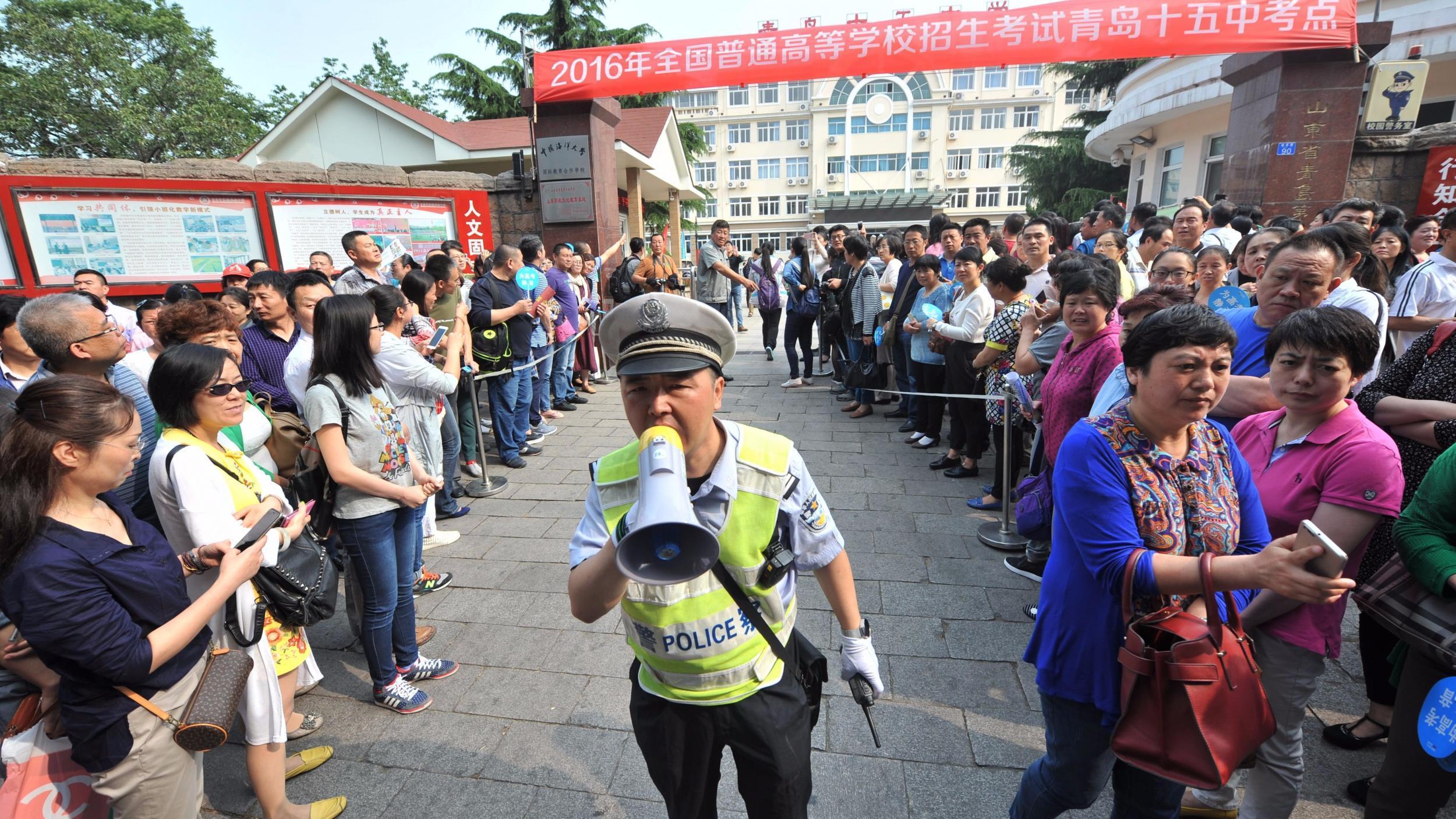Exam cheating now a criminal offence in China as students face up to 7 years’ imprisonment, confirms state news agency
Top educator tells local media move is ‘the baseline for China to maintain social justice’

Your support helps us to tell the story
From reproductive rights to climate change to Big Tech, The Independent is on the ground when the story is developing. Whether it's investigating the financials of Elon Musk's pro-Trump PAC or producing our latest documentary, 'The A Word', which shines a light on the American women fighting for reproductive rights, we know how important it is to parse out the facts from the messaging.
At such a critical moment in US history, we need reporters on the ground. Your donation allows us to keep sending journalists to speak to both sides of the story.
The Independent is trusted by Americans across the entire political spectrum. And unlike many other quality news outlets, we choose not to lock Americans out of our reporting and analysis with paywalls. We believe quality journalism should be available to everyone, paid for by those who can afford it.
Your support makes all the difference.Students in China found to be cheating in college entrance exams has, for the first time, become a criminal offence, punishable by up to seven years in prison.
The country’s state press agency, Xinhua, confirmed the tough new crackdown this week as an estimated 9.4 million high school pupils prepare to sit the exam, known as the ‘gaokao’.
In Ruijin, east China’s Jiangxi Province, the agency said test monitors were using instruments to scan students’ shoes before they entered the exam hall, while devices to block wireless signals were also put into action.
Police officers were also being deployed at test centres across the nation to look out for “suspect behaviour.”
The respected gaokao exam is a standard way to screen and select students for university-level education in the country. However, allegations of organised cheating between teachers and students has seen the reputation of the test take “a battering,” said the agency.
Xiong Bingqi, vice-president of the 21st Century Education Research Institute in Beijing, told the Global Times: “Safeguarding fairness in the gaokao and education, in general, is the baseline for China to maintain social justice.”
Institutions around the world have been clamping down in the fight against exam cheating in recent years, particularly in the Internet and digital age.
In the US this week, around 85 students are reportedly facing disciplinary action after a cheating scandal at Ohio State University. According to The Columbus Dispatch, an investigation by university officials found the veterinary students had figured out a way to share answers on online take-home tests.
And just last month, a group of prospective medical students made international news after a Thai university was forced to cancel a series of entrance exams when they were found to be cheating using super high-tech gadgets, including ‘spy movie-style’ glasses embedded with cameras and smartwatches.
The university confirmed that the students had been blacklisted, with local media reporting how they were set to appear at a police inquiry.
Closer to home, in the UK, Britain’s universities were found to be in the midst of a “plagiarism epidemic” after an investigation by The Times newspaper in January revealed how almost 50,000 students were caught cheating in the last three years.
The University of Kent came out on top with the highest number of academic misconduct cases (1,947). A university spokesperson said it had “robust systems” in place to detect anyone who may be trying to cheat, adding the institution “will not tolerate academic misconduct.”
Join our commenting forum
Join thought-provoking conversations, follow other Independent readers and see their replies
Comments